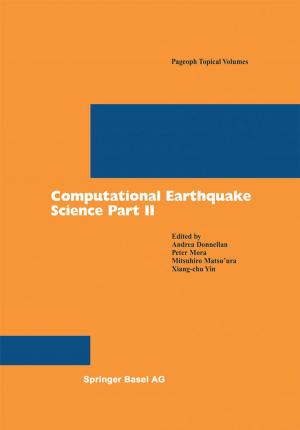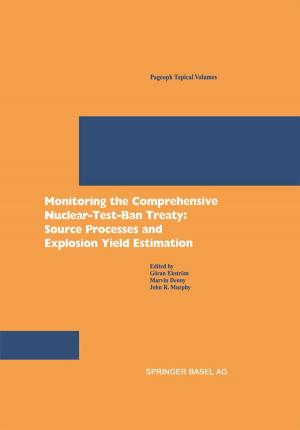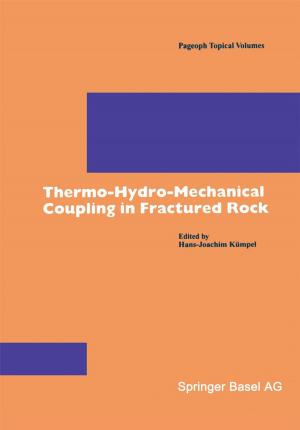| Author: | G. Gibowicz | ISBN: | 9783034892704 |
| Publisher: | Birkhäuser Basel | Publication: | December 6, 2012 |
| Imprint: | Birkhäuser | Language: | English |
| Author: | G. Gibowicz |
| ISBN: | 9783034892704 |
| Publisher: | Birkhäuser Basel |
| Publication: | December 6, 2012 |
| Imprint: | Birkhäuser |
| Language: | English |
Recent seismological research has focused on processes other than pure shear failure (double-couple) as an alternative mechanism for some types of seismic events. This has been stimulated by what appears to be anomalous focal mecha nisms observed for several earthquakes of possible volcanic nature in the 1980 Mammoth Lakes, California sequence (JULIAN and SIPKIN, 1985; SIPKIN, 1986). Although studies have concentrated on earthquakes associated with magmatic processes, possible non-double-couple seismic failure has been observed, but not widely known, in cases of mine seismicity in the past three decades. Such cases have occurred on a world-wide basis; however, no cases until now have been observed in the United States. The existence of non-double-couple failure in mine seismicity has been controversial as it has been for tectonic/volcanic earthquakes. Several of the benchmark studies of mine seismicity in the deep South African gold mines have resulted in the belief that no fundamental distinction in the source mechanism exists between tectonic earthquakes and rock bursts (MCGARR, 1984); both types of events are the result of pure shear failure. However, the reported cases of implo sional focal mechanisms for mine seismicity continue to increase in number and prolong the controversy. During the summer of 1984, a three-dimensional, high resolution micro earthquake network was operated by Woodward-Clyde Consultants (WCC) in the vicinity of two coal mines beneath Gentry Mountain in the eastern Wasatch Plateau of central Utah.
Recent seismological research has focused on processes other than pure shear failure (double-couple) as an alternative mechanism for some types of seismic events. This has been stimulated by what appears to be anomalous focal mecha nisms observed for several earthquakes of possible volcanic nature in the 1980 Mammoth Lakes, California sequence (JULIAN and SIPKIN, 1985; SIPKIN, 1986). Although studies have concentrated on earthquakes associated with magmatic processes, possible non-double-couple seismic failure has been observed, but not widely known, in cases of mine seismicity in the past three decades. Such cases have occurred on a world-wide basis; however, no cases until now have been observed in the United States. The existence of non-double-couple failure in mine seismicity has been controversial as it has been for tectonic/volcanic earthquakes. Several of the benchmark studies of mine seismicity in the deep South African gold mines have resulted in the belief that no fundamental distinction in the source mechanism exists between tectonic earthquakes and rock bursts (MCGARR, 1984); both types of events are the result of pure shear failure. However, the reported cases of implo sional focal mechanisms for mine seismicity continue to increase in number and prolong the controversy. During the summer of 1984, a three-dimensional, high resolution micro earthquake network was operated by Woodward-Clyde Consultants (WCC) in the vicinity of two coal mines beneath Gentry Mountain in the eastern Wasatch Plateau of central Utah.















